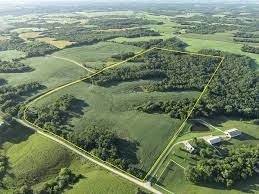Many people share the goal of owning land. Some people involved in agriculture have made sizable profits due to the rise in crop and livestock prices. But before entering the expensive land market, adopt a well-researched financial plan, regardless of whether you’re using cash reserves or borrowing for that purpose. Here are some critical inquiries for investing in farmland to ensure you do not regret your choice:
Table of Contents
ToggleWhat size piece of land are you buying?
Although it seems straightforward, how much land is being bought frequently needs to be clarified. Before placing a bid, be sure of what you’re purchasing. Verify that the land’s survey status corresponds with the offer’s specifics. If the land hasn’t been surveyed, you can use the legal description to calculate the acreage with the help of your lawyer, or you may consider having the land surveyed.
A reliable farm real estate company Webster County, IA, can facilitate the appraisal and advise you accordingly. Ensure that the land is free of any unique easements. If there are, study them well and comprehend them entirely.
What is the value of the land?
Are there any nearby similar sales? Although pricey, appraisals are the best approach to determine the worth of a piece of land. Try to locate some comparable transactions even if you are still waiting for a complete assessment to see if the purchasing price is fair.
What do you know about the property’s gas, mineral, and wind rights?
Do you, the buyer, get these rights? Were they surveyed or separated from the surface rights? Are they still leased at the moment? If so, on what conditions? Understand your property rights completely because mining and drilling operations may affect the quality of the land’s surface and water, the public’s access to it, and the viability of the farm or ranch.
Where does the water come from?
Is the land irrigated? Are the water rights included in the property sale? For the property to have value, there must be enough water. Include water costs in your financial strategy to ensure that the water cost does not negatively influence your return. Make that the relevant authorities have received registration for every water well. Ensure you are familiar with the state laws because each state has different water laws.
What zoning does the land have?
Will the current zoning limitations clash with your intentions for the property? Are there any restrictions on property usage, such as conservation easements? This element significantly affects how much you value the property, especially if your plans disagree with the zoning regulations at the time. Ensure you are familiar with any possible assured leases accompanying the property. Obtaining this information is easier with the reliable LandProz real estate LLC.
Are there any environmental issues?
An expensive environmental issue is the last thing you want to purchase. Paying for an onsite ecological audit may be worthwhile before you buy the property to ensure you are not purchasing into an expensive cleanup.
The bottom line
First-time farmland buyers may find the purchasing process intimidating, but it can be manageable with the proper knowledge and real estate agent.






